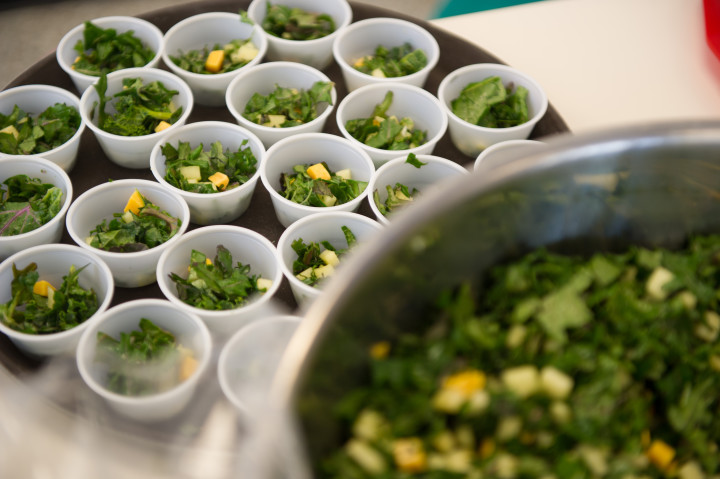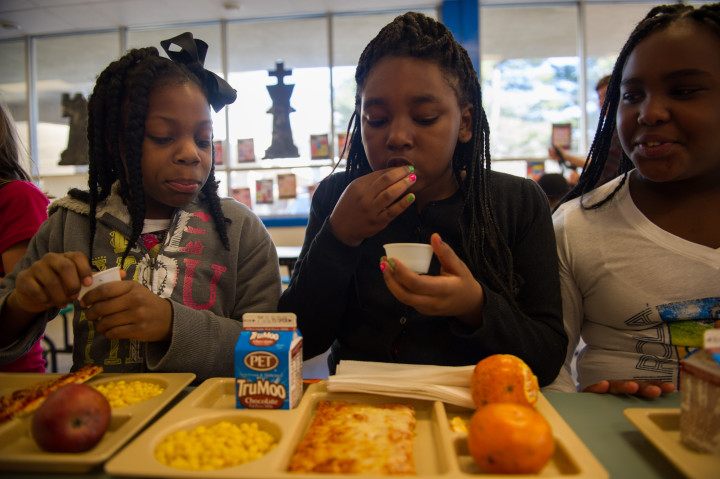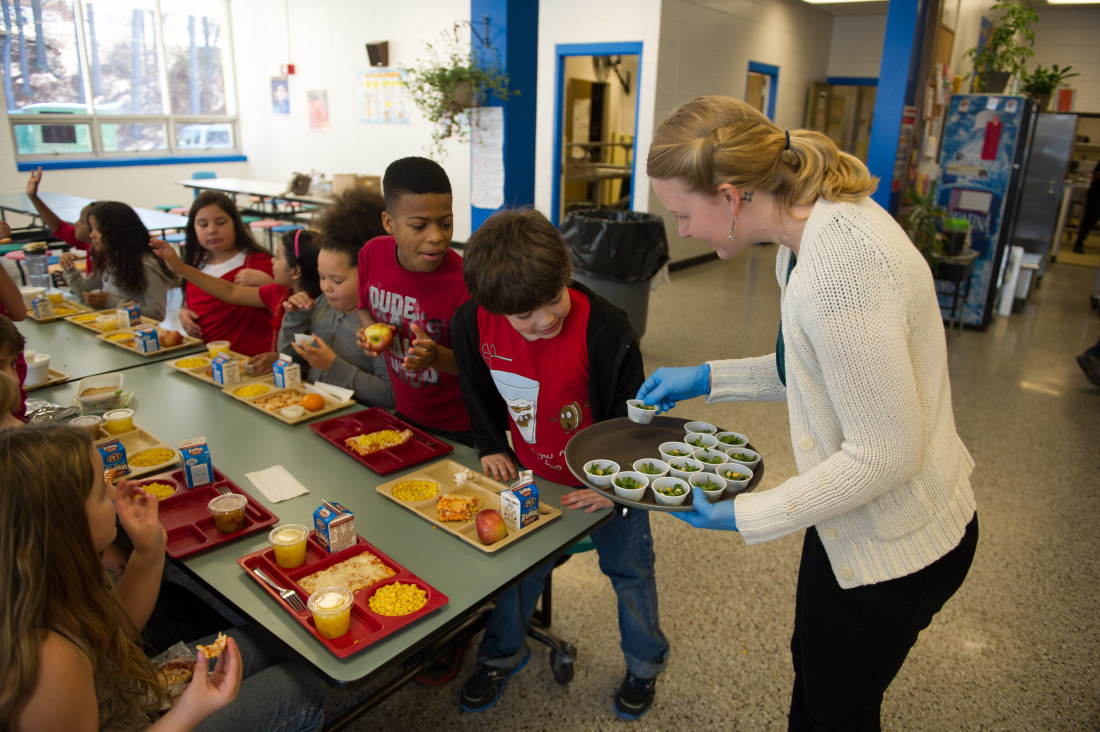The kids line up in the school cafeteria, each receiving a slab of cheese pizza, perhaps a scoop of corn, some fruit and a carton of chocolate milk. The food materializes on their plate, but where does it come from?
For many children, the links between food supply and school lunch are murky at best. But the Appalachian Sustainable Agriculture Project’s Growing Minds Farm to School program aims to shine some light on the problem, helping forge connections that can lead to a lifetime of better health.
Since 2002, the program has educated more than 15,000 children in 120 Western North Carolina schools about local food and farms. ASAP says the program gives kids opportunities to learn about local food and farms in the classroom, cafeteria and community, including such activities as edible school gardens, farm field trips, classroom cooking with local food and locally grown food served or provided via taste test in the cafeteria.

“This is about knowing where your food comes from, and having a connection and relationship with it,” says Emily Jackson, Growing Minds’ founder and program director. “We’re trying to change the food eaten by kids, and their behavior, toward a healthier lifestyle as early as possible. This will benefit them for years and years.”
Last year, the program provided 16,045 taste test experiences in 39 separate tests. On this particular day at Hall Fletcher Elementary School, locally grown kale is on the taste test menu. ASAP intern Amy Marion and volunteer Sarah Myers have prepared a cheese, apple and kale salad. They scoop the bright green mixture out of a large bowl, place it into small cups for the children, then dole them out to willing taste testers during the lunch break.
Small hands shoot up when students are asked who wants to taste the fresh greens. Marion, who’s coordinated a half-dozen tastings, says that kind of interest is not unusual.
“You’ll see their hands go up quite a bit. It’s really nice to see the enthusiasm and excitement. We’re looking for the kids just to taste to see if they like it,” she says. “It’s really fun, and when you get a thumbs up, it’s just adorable.”
Myers adds, “Most of the kids were really enjoying it, and others were just trying it. I think there were more positives than not, and that’s great.”
Students are sent home with surveys, information for parents and a sticker saying that they’ve tasted local veggies that day. It’s all designed to help the habit of eating fresh, locally grown greens, fruits and vegetables take root.
“I see the kids with their stickers, sometimes weeks later, saying how excited they were at the taste tests,” says Julia Haman, who teaches Spanish at Hall Fletcher. “They do talk about how tasty it was, so that tells me the idea of eating locally sticks.”
But the taste tests, which are conducted on Fridays at area elementary schools, are only one aspect of the overall program.
The Growing Minds 2013-2014 Farm to School Report Card dishes up some impressive numbers: In 2013, nearly 8,000 children received 547 seed packets for gardens at 40 sites in 11 counties. Almost 14,000 recipe cards were distributed, and more than 1,100 people were trained through cooking classes and demonstrations. And 575 children took 10 field trips to seven local farms.
These activities plant seeds in the minds of young people.
“The main mindset is that children, like adults, need some message, and to have the experience of seeing the local food product and where it comes from. It sticks with them. Then, when they’re out shopping with mom and dad at Ingles or going to a restaurant and they see local food, they know where it came from,” says Jackson.
Back at Hall Fletcher, two third-grade friends are all smiles after sampling their kale.

“It’s something new,” notes Ana’ya Harper, who says she’s tried the leafy vegetable before, but it wasn’t this good.
Adreyona Smith’s endorsement is even more glowing.
“It’s good. It made me want to take that whole tray and eat it. I’ll try to get my parents to make it. I like the way they made it: It was mixed up and easy to eat. The best part was the kale and cheese together,” she observes.
Results like these are a win for local growers who are battling the constant onslaught of fast-food advertising aimed at families. The taste tests, like the overall Farm to School program, are working to change meal habits — one family at a time.
“When we integrate this local food mindset into education, it’s going to be a rare parent who is not going to do anything with this. It really gets attention,” says Jackson.




This is so great! Amy Marion you are a #kalehero!
Hope to see you all celebrating National Kale Day on October 1!
Thank you!!!